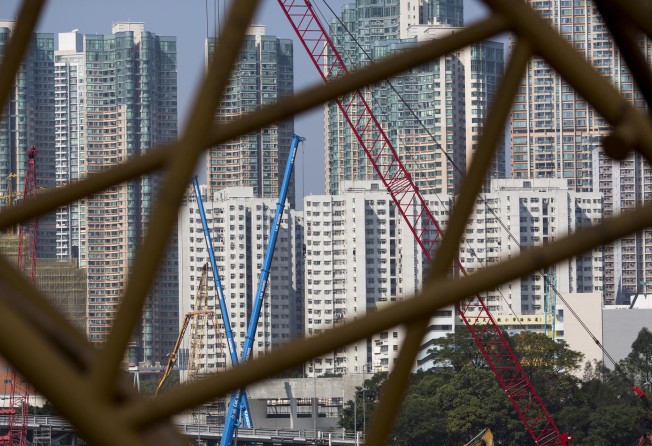Costs of acquisition deter redevelopment projects
Private-sector redevelopment projects have declined in the past two years despite the fact that more and more buildings are getting old

In 2011, there were about 4,000 buildings aged 50 years or above in Hong Kong, according to the Development Bureau, with that number set to increase at a rate of 500 each year over the decade.
The design life of a concrete structure is generally 50 years. The expected lifespan of concrete buildings can be substantially extended with proper maintenance. Many of these over 50 years old have no lifts and have substandard sanitary provisions. Quite a number are in imminent need of intensive repairs and maintenance, and a handful demand demolition and rebuild.
The growing number of old buildings does not coincide with a rise in the number of redevelopment projects. Quite the reverse, a declining trend in the number of redevelopments has been observed in the past two years. The number of applications for sale under the Land Compulsory (Sale for Redevelopment) Ordinance (Cap. 545) pending a Lands Tribunal hearing declined from a peak of 60 in 2012 to 17 in 2013 and 25 in 2014.
An adequate economic motive is necessary for private developers to undertake redevelopment projects. But economic factors are acting in a direction that has deterred redevelopment in recent years.
The two major items on the redevelopment expenses list, namely construction costs and acquisition price of strata-titled units in existing buildings, have lifted drastically.
Construction costs increased more than 30 per cent from 2011 to 2014, according to the building works tender price index published by the Architectural Services Department.
Prices to buy out owners of buildings have also surged. The mass residential (Classes A, B and C) price index published by the Rating and Valuation Department rose 65 per cent from the beginning of 2011 to the end of 2014. Owners would naturally demand a similar rise in the acquisition price offered by developers to enable them to find flats in the market.
The extra stamp duty imposed by the government in the past few years has had the unintended consequence of eradicating the economic motive for private redevelopment. Buyer stamp duty was imposed in December 2011, and ad valorem stamp duty was doubled in February 2013.
Developers that are acquiring strata-titled properties for joint redevelopment are subject to the buyer stamp duty and double stamp duty. Although both the buyer stamp duty and the additional ad valorem stamp duty will be refunded after consent is obtained to start superstructure works, interest cost of these extra stamp duties becomes an additional burden when carrying out redevelopment projects. What cannot be overlooked is the compound effect of the long holding period of the acquired units, the painstaking site assembly process and the interest costs.
Urban redevelopment is one of the key ways to increase residential flat supply by unlocking the redevelopment potential of sites in established areas. It is also vital for improving the city's living standard and quality of life.
While the Urban Renewal Authority is a self-financing public body set up to deal with urban renewal issues where the market fails to deal with them adequately, it is facing heavier financial pressure and recorded a net operating deficit of HK$2.3 billion for the year to March 2014. The deficit was mainly due to the provision for loss for various demand-led and self-initiated redevelopment projects. Obviously the urban decay problem cannot be handled entirely by the public sector.
Private-sector participation in expediting redevelopment projects is irreplaceable. The crucial issue is how to provide more inducements to private developers to carry out privately led redevelopment projects.
The government may consider providing tax incentives, such as reducing stamp duty of properties for redevelopment, and reducing the profit tax of trading properties from the corporate level. On the revenue front, innovative means such as providing bonus plot ratio for certain types of sites can be explored.
Urban redevelopment is always a complex topic that involves economic, social and environmental considerations. For the benefit of society at large, it is high time we expedited privately led redevelopment to help discontinue the problem of ageing buildings.
Dorothy Chow is national director of the Hong Kong valuation department at JLL